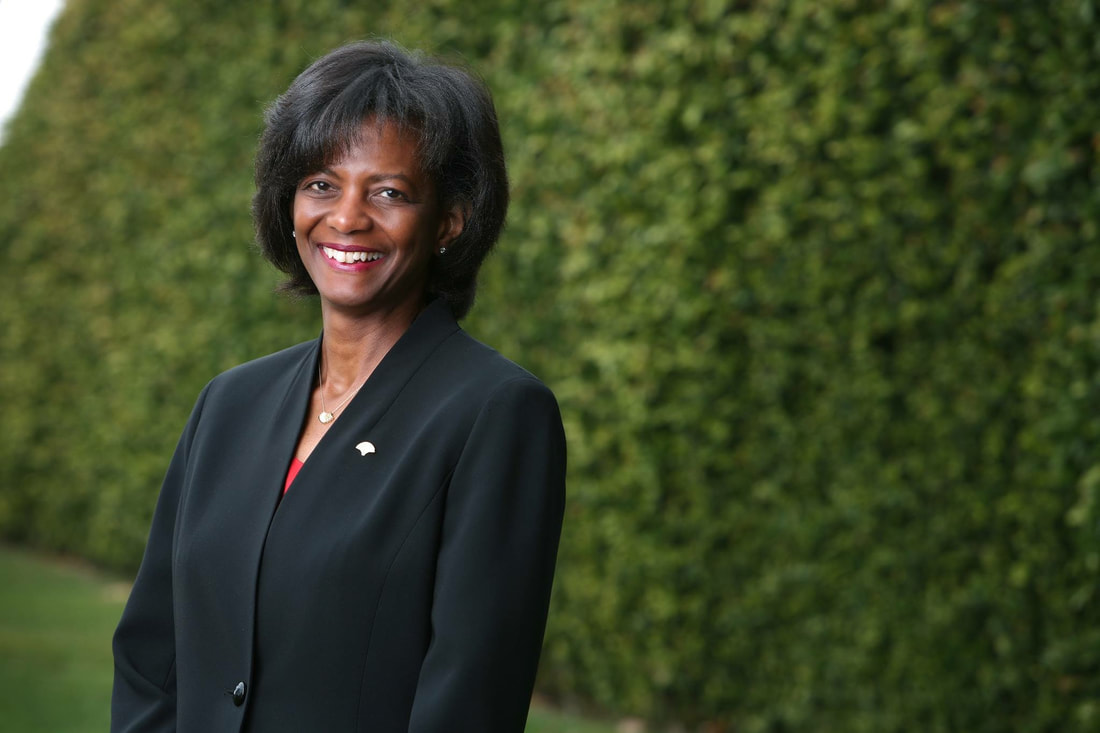|
by Anthony R. Green With the recent deaths of Aretha Franklin and George Walker, both powerhouse musicians and artists who were multitalented and executed everything with sophistication and poise, the spirit of legacy is present. Legacy takes on many different forms, though, and the legacy of Dr. Rae Linda Brown extends far beyond her work as a Florence B. Price scholar. Last year, I had the honor of talking with composer, mentor, and friend Dr. William Banfield about Dr. Rae Linda Brown. This interview took place almost one month after her passing. We were at Slades, eating soul food, talking about music, and remembering this wonderful woman whom I never met. Below is the majority of the interview with some light edits. ARG: I want to talk to you about the recent passing of Dr. Rae Linda Brown
BB: Unbelievable. ARG: Yes. I want to ask you in what capacity did you know her? What impact did she have on you and your studies and your work? How much of her work did you follow? And other thoughts and reflections? BB: It’s sad to talk about it, and I haven’t talked about it. None of us have. We also [just recently lost] Geri Allen. I’m from Detroit, and I saw Geri a few weeks before she died. And we had breakfast together. I had seen her here with Esperanza and Terri Lyne Carrington here in Boston. And I went backstage to hug her, and she held my hand. You know … she’s my big sister; we’re from the same high school in Detroit, Cass Tech. And she just held my hand. So I walked her to her, you know, towards the dressing room, and I hugged her; “So Geri, it’s so good to see you.” And, you know, she’s quiet and contemplative anyway. I didn’t think much of it. One week after that I went to Detroit because I had … a cousin who was passing, and I saw her at a restaurant, and she came over; we sat down with her, and she said, “Come hear me play tonight.” [I said,] “oh I can’t, Geri, I gotta see some friends…” She looked – now, I know she was ill, but I didn’t accept it. She died within two weeks. And just after that, … Rae Linda’s sister … called me and said “Rae Linda’s very ill.” I couldn’t take two of those … you talk about influence: Geri Allen being that’s my big sister from Detroit. She was our goddess, Geri Allen, in terms of composition … and, as well, her work in the jazz field. So what had happened was that, when I found out about Rae Linda, she was struggling with the decision to quit her job, and, within 2 or 3 weeks, we lost Rae Linda. ARG: And this was because of health reasons she was thinking of quitting? BB: Yeah, she got a – they both got cancers. [These two] sisters both got cancers that took them down very quickly, and they didn’t share that with everybody. […] Now to your [question], I was 26 years old when I met her, and she said “you are a talented composer.” And my dear friend Stephen Newby, we’re both from Detroit, she said [to us], “You all, when you finish your graduate studies, you need to come to the University of Michigan, and I can help introduce your music to the composers there.” And there was another gentleman there whose name is Dr. Willis Patterson. We were celebrating him two weeks ago, the night Rae Linda died. ARG: Wow. BB: And that night, I knew she was very ill. I didn’t announce it to the audience that night. I simply said, “Let’s lift up Rae Linda tonight, who is our dear big sister.” Most of us that were there at that event, she brought us there. We’re talking about – Anthony, you need to understand this – we’re talking about the largest Black trained Classical group of musicians in the history of the world came to Michigan then. So singers, composers, ethnomusicologists, musicologists all came because they had this huge amount of money to support talented Black people. That’s why [when] people say affirmative action and all that, those things are absolutely essential because those monies were set aside for promising people. […] And we were some of the most promising people of our generation at the time, I know that sounds kind of [egotistic] … ARG: No, you are living up to it. BB: … but that’s what generated it. So all those great artists that we know, those Black composers like Adolphus Hailstork, Hale Smith, TJ Anderson – they were all aware of the programs at Indiana and University of Michigan. So, you can imagine: she was a young professor there. She’s maybe 10 years my senior. So we’re 25, she’s 35, and she said “Come to Michigan.” If it wasn’t for her, I wouldn’t be here in the capacity as an artist now. So, we’re talking about the last 30 years, and […] 3 or 4 times a year [when I go to LA, I stay in] Redondo Beach with Rae Linda. So for her not being here, that’s CRAZY. ARG: There is a hole. BB: That’s a hole in my life that I have not adjusted with. We’re doing a dedication concert for her in California in Redondo Beach next weekend, so we’re all flying out there. […] So that’s how important she was. There wasn’t anything that I did in life over the last 30 years – from 25 to 55 plus – that I didn’t check in with Rae Linda about. She was my big sister in music. And the academy: every job that I’ve had – and I’ve taught at 30 colleges and universities – every place that I go, before I go out for residence there, I call her [and ask]: “what about this place? Da da da da da …” No! Don’t do it! Are you crazy! Don’t let them do that to you! […] ARG: And she was always on point … BB: Always on point, and straight up … and, you know, her work as a musicologist, of course that was very important to us because we were composers, and she [studied] the work of Florence Price. So she helped to train us about the importance of documenting the work of great thinkers and certainly great musicians like Florence Price. Across the board, [Rae Linda] is important. ARG: So her work in documentation also is probably a great inspiration for you in your documentation work, because you have those volumes of interviews with composers, and histories and biographies of composers. That must have also been … BB: I learned that from her. Yeah, you’re absolutely right on. The ethnomusicology model, that musicologist model, I got from her. Yeah, that was 1988 that she brought us there. So we were here in the late 70s, early 80s – we were here [in] Boston. When we finished our graduate degrees, we went right from here on the east coast, right to the Midwest. And that was the case with [many] composers – TJ, all of ‘em, they studied in the Midwest, even though they might have been from [the] south or the east, but the Midwest had two big schools: IU – Indiana University, and Michigan. Iowa too. So those were a consortium of composer schools that a lot of composers went. If you weren’t studying at Princeton [or] Yale … ha ha ha … [or] Juilliard, then you went to the Midwest and you went to the University of Michigan, Iowa, Ohio State, and Indiana University. And then my first job as assistant professor was at Indiana University, and – of course – who trained me for that to know how to go there? Well, Rae Linda. You better make sure you tell them that they gotta pay for your travel there, and as an assistant professor you need to demand this, etc … How would we learn that? How would we learn how to be young professors in the system if it weren’t for Rae Linda and the older ones that would train about how to do that? And so we all learned how to be professors from that tutelage [ … ]; she trained us about how to get training, and then how to navigate the system. So it’s not only getting your skills together, it’s actually getting your job skills together: how to interview, how to demand certain things of the academy, how to go for your tenure … So my tenure files: everything went by Rae Linda. Everything. So I won’t cry. I’ll just say that the reason why a lot of us are here … now, at U of M, you gotta remember there were maybe 25 or 30 of us that came in at the same time: 5 singers, 3 composers, Guthrie Ramsey who is one of the Americanists now, [we] came in under Rae Linda. […] And she was a young professor under George Shirley! […] So it’s a major loss, Rae Linda. She was such a quiet and determined fire. […] That’s how she impacted all of us. ARG: That is HUGE. That is much bigger than I could have imagined. It’s stuff like that that doesn’t make it into biographies. I read some biographies of her and some obituaries, but [they don’t] talk about this big influence and the greater story – how much her role has had in the greater story of Black musicians in history, so thank you so much for sharing this. * * * Next post: Sunday, September 2, 2018; topic: artist spotlight and interview with Elizabeth Baker!
0 Comments
Leave a Reply. |
Details
Writings, musings, photos, links, and videos about Black Artistry of ALL varieties!
Feel free to drop a comment or suggestion for posts! Archives
May 2024
|
Member Login
Black concert series and educational programs in Boston and beyond


 RSS Feed
RSS Feed










